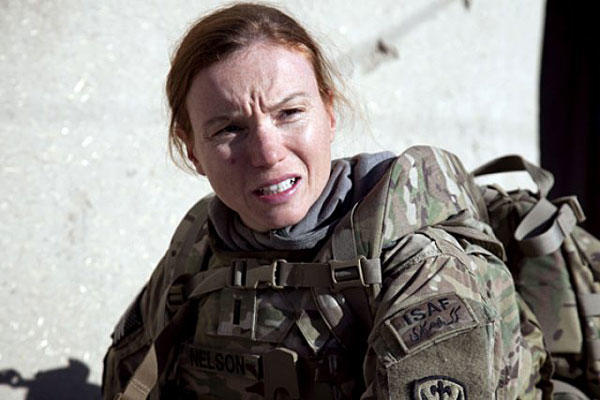The two female Army officers who earned the coveted Ranger Tab will make it more difficult for the services to object to the Pentagon's "presumption" that all military jobs should be open to women.
Data on the performances of Capt. Kristen Griest, a military police officer with the 101st Airborne, and 1st Lt. Shaye Haver, an Apache attack helicopter pilot, was being shared by the Army with the other branches of military service as they prepare to make their decisions on women in combat roles, the Pentagon said in a statement Tuesday night.
The two women and 94 men will receive the Ranger Tabs at a graduation ceremony Friday on Victory Pond at Fort Benning, Georgia, in a historic first.
Since the military began its review of restrictions on women, "the services and Special Operations Command have been sharing information and lessons-learned throughout that entire process," said Navy Capt. Jeff Davis, a Pentagon spokesman.
"Beyond regularly occurring meetings at the Office of the Secretary of Defense and Joint Chiefs level, the services (at all levels) routinely cross share information, lessons-learned, and best practices," Davis said.
In January 2013, then-Defense Secretary Leon Panetta rescinded the Direct Ground Combat Definition and Assignment Rule, which barred women from combat roles. Since then, the services have opened up about 111,000 billets that previously were closed to women. But about 200,000 billets, mostly in the infantry, remain closed.
By the end of September, the services must report to the service secretaries on whether they will seek exceptions for certain billets from the "presumption" by the Pentagon that all military occupational specialties should be open to women who meet the standards.
Defense Secretary Ashton Carter was expected to decide in January whether exceptions, if any, will be approved.
The Army and the Pentagon have been emphatic in outlining the standards met by the two women at Ranger School in a possible signal that the Army will push to open billets in the infantry, armor and artillery.
Related Video:
Highlights of the 62-day Ranger course included a physical fitness test consisting of 49 push-ups, 59 sit-ups, a five-mile run in 40 minutes, six chin-ups, a swim test, a land navigation test, and a 12-mile foot march in three hours, the Pentagon said.
In addition, there were several obstacle courses, four days of military mountaineering, three parachute jumps, four air assaults on helicopters, multiple rubber boat movements, and 27 days of mock combat patrols.
During the course, the students learned how to operate in three different environments -- woodlands in Fort Benning, mountainous terrain in Dahlonega, Georgia, and coastal swamp in Eglin Air Force Base, Florida.
The Army called Ranger School "the Army's premier combat leadership course, teaching Ranger students how to overcome fatigue, hunger, and stress to lead Soldiers during small unit combat operations."
As the service announced Monday that the two women had passed Ranger School, Navy Adm. Jonathan Greenert, the chief of Naval Operations, said that the sea service should allow women who can meet the standards to apply to the elite SEAL teams.
The Air Force, which has the highest percentage of women at 19 percent of its 308,000 personnel on active duty, was in the process of "vetting and verifying" the information gathered from numerous tests and studies on opening closed positions to women, said Capt. Brooke Brzozowske, an Air Force spokeswoman.
By Sept. 30, Air Force Secretary Deborah Lee James will make her recommendations to Carter and the Joint Chiefs of Staff, she said.
Currently, there are 4,300 positions not open to Air Force women in six career fields – special tactics officer, special operations weather, combat controller, pararescue, combat rescue officer and tactical air control, Brzozowske said.
The Marine Corps has taken a different approach in evaluating through lengthy tests and studies whether closed positions should be open, focusing more attention on "how this will effect combat readiness and effectiveness," said 1st Lt. Philip Kulczewski, a Marine spokesman.
In the process, the Marines for the first time allowed women to attempt to pass the demanding Infantry Officer Course. Twenty-nine women began the course but none passed. The same class had 978 male candidates and 692 passed.
The Marines also allowed enlisted women to enter the eight-week School of Infantry. Of 401 female volunteers for SOI, 144 passed. At the same time, 5,503 males entered SOI and 5,220 passed, Kulczewski said.
--Richard Sisk can be reached at Richard.Sisk@military.com































